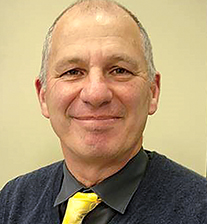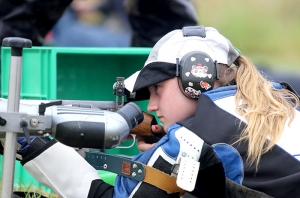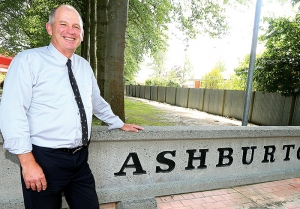Search

 Ross Preece Ashburton College Principal.Ashburton College has had an unexpected roll blow-out of 50 students as it starts the 2019 school year.
Ross Preece Ashburton College Principal.Ashburton College has had an unexpected roll blow-out of 50 students as it starts the 2019 school year.
That’s significantly up on the Ministry of Education’s predictions, principal Ross Preece said, and while it’s great news for the college, it does come with its own problems.
“It’s fantastic but we’re staffed on what the ministry allowed.
“The extra staffing the ministry will cover but not until the end of term one,” he said.
And that means the college has had to juggle class numbers to accommodate the roll growth.
While Year 9 ratios will remain at 1:25, Year 10 could lift to 1:28 or 1:30.
Roll growth had come across all years and Preece is attributing some of the extra numbers to the excellent ERO report the school received last year and to the breadth of subjects it had on offer.
Extra students inevitably meant extra teachers, and based on anticipated numbers, Preece said he had just completed his last appointment for the new year.
Once a returning Kiwi teacher living in England joined the staff in two or three weeks, the school would be fully staffed, he said.
“Staffing is always an inexact science.
“We advertised three times for a science teacher but there was no-one suitable.
“Then we advertised over the Christmas break and we got 12 applicants.”
A low number of applicants for advertised positions was common around the district, Preece said, but principals generally managed to find good staff.
That was not the case in many parts of New Zealand where schools advertised vacancies and received no suitable applicants.
By Sue Newman© The Ashburton Guardian - 4 February 2019
 Ashburton shooter Megan Snowden was part of the New Zealand under-21 team that secured the World Championship title in Trentham on Monday. Photo Robyn HoodAn Ashburton local has been crowned world champion as things begin to heat up in the National Rifle Assocation Championships which are being held alongside the Long Range World Championships in Trentham.
Ashburton shooter Megan Snowden was part of the New Zealand under-21 team that secured the World Championship title in Trentham on Monday. Photo Robyn HoodAn Ashburton local has been crowned world champion as things begin to heat up in the National Rifle Assocation Championships which are being held alongside the Long Range World Championships in Trentham.
Megan Snowden was part of the New Zealand under-21 team that shot their way to victory over Great Britain, Australia and the United States on Monday.
The team posted a combined score of 946.068, 14 better than the second placed Australian side who posted 932.065.
The United States finished third with 917.066 and Great Britain fourth with 905.057.
It was also a good day for other Ashburton shooters, with the South Island defeating their North Island opposition in the annual North Island v South Island match.
Coby Snowden captained the side, while Darian Millar, John Fleming and Ken Chittock all shot.
The medals for the World Championships winners will be presented on February 3.
“The mood is very happy, everyone is thrilled this team pulled off a great win, and under very tricky hot and windy conditions,” Snowden said.
The Ballinger Belt series begins today, where John Snowden will look to become the first person in the competition’s history to defend the title which was first put on the line in 1873.
By Jaime Pitt-MacKay © The Ashburton Guardian - 29 January 2019
 Ross Preece. Photo supplied.When the numbers were counted and the results analysed, Ashburton College principal Ross Preece said his students and staff had every reason to be proud of their 2018 NCEA achievements.
Ross Preece. Photo supplied.When the numbers were counted and the results analysed, Ashburton College principal Ross Preece said his students and staff had every reason to be proud of their 2018 NCEA achievements.
At level one, the college achieved an 82.5 per cent pass rate, 88 per cent at level two and 67 per cent at level three.
The percentage of students achieving each NCEA level was never an accurate reflection of achievement, however, because achievement was measured against student numbers on a school’s roll rather than students who were actually eligible to pass, Preece said.
Roll numbers included students who were on the roll for only a short period during a year, who were in special learning units or who were enrolled but absent from school for some reason.
“If you took the students who were actually eligible to pass, our rate would be 90 per cent,” he said.
Year 13 pass rates were always impacted by the number of students who did not complete their final year at school because they had moved on to employment and last year the college had a significant number who left for good jobs, Preece said.
A review of the way they work NCEA standards to more accurately measure pass is way overdue, he said.
When it came to results for students who were moving on to university, the college scored a 100 per cent pass rate for university entrance.
“Overall we’re pretty pleased with those results.
“They’re certainly up on where they were two or three years ago and they’re slightly improved on last year.”
Some of the improvement in level one was due to an improved tracking system on student achievement.
This allowed the college to identify early in the year the students who might struggle to achieve and the school could then work with parents and the student to improve the likely outcome, Preece said.
One of the biggest inhibitors to student achievement, and one that was more difficult to overcome, was parent-condoned absence, parents who were prepared to let their children miss days of school for no specific reason, he said.
By Sue Newman © The Ashburton Guardian - 2 February 2019

